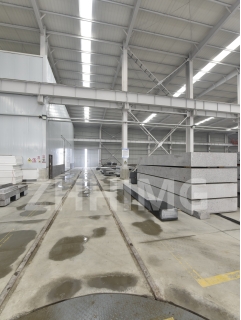The thermal expansion coefficient of the granite base has a significant effect on the measuring machine. A granite base is commonly used as the foundation for a three-coordinate measuring machine (CMM) due to its excellent rigidity, stability, and durability. The granite material has a low coefficient of thermal expansion, which means that it has minimal dimensional changes under varying temperatures. However, even with low thermal expansion, the granite base's coefficient can still affect the accuracy and precision of the measuring machine.
Thermal expansion is a phenomenon where materials expand or contract as the temperature changes. When exposed to different temperatures, the granite base can expand or contract, resulting in dimensional changes that can cause problems for the CMM. When the temperature increases, the granite base will expand, causing the linear scales and other components of the machine to shift relative to the workpiece. This can lead to measurement errors and affect the accuracy of the measurements obtained. Conversely, if the temperature decreases, the granite base will contract, which could cause similar problems.
Moreover, the degree of thermal expansion of the granite base will depend on its thickness, size, and location. For example, a large and thick granite base will have a lower coefficient of thermal expansion and undergo less dimensional changes than a small and thin granite base. Additionally, the location of the measuring machine can impact the temperature of the surroundings, which could cause thermal expansion to differ across multiple areas.
To address this issue, CMM manufacturers design the measuring machines to compensate for thermal expansion. Advanced CMMs come with an active temperature control system that maintains the granite base at a constant temperature level. In this way, the temperature-induced deformations of the granite base are minimized, thereby improving the accuracy and precision of the measurements obtained.
In conclusion, the thermal expansion coefficient of the granite base is a critical factor in the overall performance of a three-coordinate measuring machine. It can affect the accuracy, precision, and stability of the measurements obtained. Therefore, it is essential to understand the thermal properties of the granite base and implement measures that address thermal expansion during the design and operation of the CMM. By doing so, we can ensure that the CMM delivers reliable and repeatable measurement results that meet the desired accuracy and precision requirements.
Post time: Mar-22-2024

